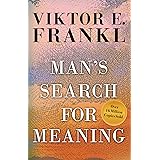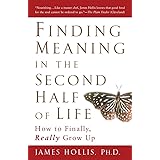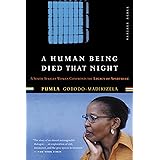
Enjoy fast, free delivery, exclusive deals, and award-winning movies & TV shows with Prime
Try Prime
and start saving today with fast, free delivery
Amazon Prime includes:
Fast, FREE Delivery is available to Prime members. To join, select "Try Amazon Prime and start saving today with Fast, FREE Delivery" below the Add to Cart button.
Amazon Prime members enjoy:- Cardmembers earn 5% Back at Amazon.com with a Prime Credit Card.
- Unlimited Free Two-Day Delivery
- Streaming of thousands of movies and TV shows with limited ads on Prime Video.
- A Kindle book to borrow for free each month - with no due dates
- Listen to over 2 million songs and hundreds of playlists
- Unlimited photo storage with anywhere access
Important: Your credit card will NOT be charged when you start your free trial or if you cancel during the trial period. If you're happy with Amazon Prime, do nothing. At the end of the free trial, your membership will automatically upgrade to a monthly membership.
Buy new:
$13.99$13.99
Ships from: Amazon.com Sold by: Amazon.com
Save with Used - Good
$7.74$7.74
Ships from: Amazon Sold by: Gifts Amore

Download the free Kindle app and start reading Kindle books instantly on your smartphone, tablet, or computer - no Kindle device required.
Read instantly on your browser with Kindle for Web.
Using your mobile phone camera - scan the code below and download the Kindle app.

OK
What's It All About?: Philosophy and the Meaning of Life 1st Edition
Purchase options and add-ons
Julian Baggini thinks not. Rather, as Baggini argues in What's It All About, meaning can be found in a variety of ways. He succinctly breaks down six answers people commonly suggest when considering what life is all about--helping others, serving humanity, being happy, becoming successful, enjoying each day as if it were your last, and "freeing your mind." By reducing the vague, mysterious question of "meaning" to a series of more specific (if unmysterious) questions about what gives life purpose and value, he shows that the quest for meaning can be personal, empowering, and uplifting.
Illustrating his argument with the thoughts of many of the great philosophers and examples drawn from everyday life, Baggini convincingly shows that the search for meaning is personal and within the power of each of us to find.
- ISBN-109780195315790
- ISBN-13978-0195315790
- Edition1st
- PublisherOxford University Press
- Publication dateJanuary 8, 2007
- LanguageEnglish
- Dimensions8.14 x 0.47 x 5.46 inches
- Print length224 pages
Frequently bought together

Similar items that may deliver to you quickly
Editorial Reviews
Review
Book Description
About the Author
Product details
- ASIN : 0195315790
- Publisher : Oxford University Press; 1st edition (January 8, 2007)
- Language : English
- Paperback : 224 pages
- ISBN-10 : 9780195315790
- ISBN-13 : 978-0195315790
- Item Weight : 6.1 ounces
- Dimensions : 8.14 x 0.47 x 5.46 inches
- Best Sellers Rank: #1,247,730 in Books (See Top 100 in Books)
- #422 in Philosophy Reference (Books)
- #712 in Humanist Philosophy
- #4,457 in Philosophy of Ethics & Morality
- Customer Reviews:
About the author

Dr Julian Baggini is the author, co-author or editor of over 20 books including The Great Guide: What David Hume Can Teach Us about Being Human and Living Well (Princeton University Press), The Godless Gospel, How The World Thinks, The Virtues of the Table and The Ego Trick (all Granta) and The Edge of Reason (Yale University Press). He was the founding editor of The Philosophers’ Magazine and has written for numerous newspapers and magazines, as well as for the think tanks The Institute of Public Policy Research, Demos and Counterpoint. He is Academic Director of the Royal institute of Philosophy and an Honorary Research Fellow at the University of Kent. His website is JulianBaggini.com
Customer reviews
Customer Reviews, including Product Star Ratings help customers to learn more about the product and decide whether it is the right product for them.
To calculate the overall star rating and percentage breakdown by star, we don’t use a simple average. Instead, our system considers things like how recent a review is and if the reviewer bought the item on Amazon. It also analyzed reviews to verify trustworthiness.
Learn more how customers reviews work on Amazon-
Top reviews
Top reviews from the United States
There was a problem filtering reviews right now. Please try again later.
A religious reader would probably not like this book, since the point of the book is to consider the meaning of life assuming the "naturalist account is broadly true" and "to consider the implications for life's meaning if it is true." A religious reader, however, is unlikely to go looking for a book on the meaning of life, so I think there's little risk of this book bothering anyone. A religious reader would be better off starting with Baggini's book on atheism.
The argument in the book that best struck me is that it is better to consider life as a process rather than as a set of discrete targets or goals, since once you achieve a goal, you're done, and the achievement is really just a single point in time. After you achieve a goal and until you set a new one, you may think of your life as meaningless. So think of goals along a continuous process of your life, not as end points.
The best thing I like about the book is the writing style. It was a joy to read the clear and incisive arguments. Highly, highly recommended, if only for reading pleasure.
Other good books on the meaning of life are What Is The Meaning Of Human Life? by Belliotti and The Brain and the Meaning of Life by Paul Thagard.
The conclusion that meaning of life could be found in finding a satisfying activity that will last a lifetime is just OK. It could work for a lot of people but many others would still be left overboard. True, just because not everybody can be happy doesn't mean that the author's conclusion is wrong, but I would have enjoyed the book much more if I saw some acknowledgment that life can really, well, suck and there could be nothing we could do about it. That would make the discussion more honest. One just needs to think about the great number of those sick, oppressed, tortured (right this moment), deeply depressed, unjustly imprisoned, etc. Their suffering might be too all-consuming to think about anything but putting an end to it. Can they find a meaning to their lives?
I think it would be more honest if we said that there is a tremendous degree of chance and luck involved in our ability to make our lives bearable. We might know the recipe for a good life but our brain constitution could be such that implementing the plan would be anatomically/neurologically impossible. Even if some of us do find a way to get enjoyment out of our lives, it hardly has any significance after our death, because that enjoyment (or any other emotion for that matter) doesn't transcend our being.
Death erases all signs of our lives as Marcus Aurelius kept telling himself in his "Meditations". Our feeling of enjoyment is just a function of our brain (made possible by our dopamine based reward system) and so just another animalistic function that stops working the minute we are dead. How we felt during our lives has zero significance. Except our brains make us feel better when we do something that they think is good for us. A hard question for me is: if it doesn't matter how we feel during our lives, why not just enjoy our lives since it feels better (i.e. generates dopamine)? It sure is an enticing proposition but strangely enough, hurting gives its own pleasure. In the end, happy or unhappy doesn't change anything after our death and in that sense Camus' question "Why not commit suicide?" still stands -- at least for those whose suffering is hard to bear.
In my opinion, the best take on life, its meaning or lack thereof was given by Schopenhauer despite all the criticism his philosophy has received. Yes, his philosophy is pessimistic, but just because it is pessimistic doesn't make it wrong.
Baggini does not pre-suppose any deep philosophical knowledge on the part of the readers. So, he explains any philosophical concepts that he brings up. In this way, the book is also a good introduction to philosophy. As other reviewers and even Baggini himself have mentioned, Baggini provides no clearcut prescription but a framework which can be used to live a meaningful and purposeful life. Baggini discusses and identifies a number of components of the purposeful life, but it is up to the readers to work out the specifics and to bring it to fruition. I find this approach very hopeful and motivating although I can understand that it can also feel daunting.
For someone who is already well versed in philosophy, this book might not be a satisfying read. Baggini does not spend more than a couple of pages (small pages and large print!) on any of the philosophical concepts/theories that he introduces. But for the layperson looking to read her first book on the meaning/purpose of life, this book is great.
Top reviews from other countries
However it occurred to me that the author neglected to consider the meaning of life from an evolutionary point of view.
We are part of the natural world - an advanced mammal - so therefore the basic behavior of simpler species should be contrasted with us.
When we examine other animals, birds and fish etc. their aims are clear - survival and fundamentally reproduction.
Our thoughts and sense of self lead us to speculate on a whole range of loftier purposes for our lives. Despite this we are basically little different from other forms of life in our key motivators.
So in effect, I would suggest that to reproduce is the purpose in life coded in our DNA. So perhaps, at an instinctive level, having offspring is what makes all organisms most happy and complete.
Starting a family may be what it's all about.











